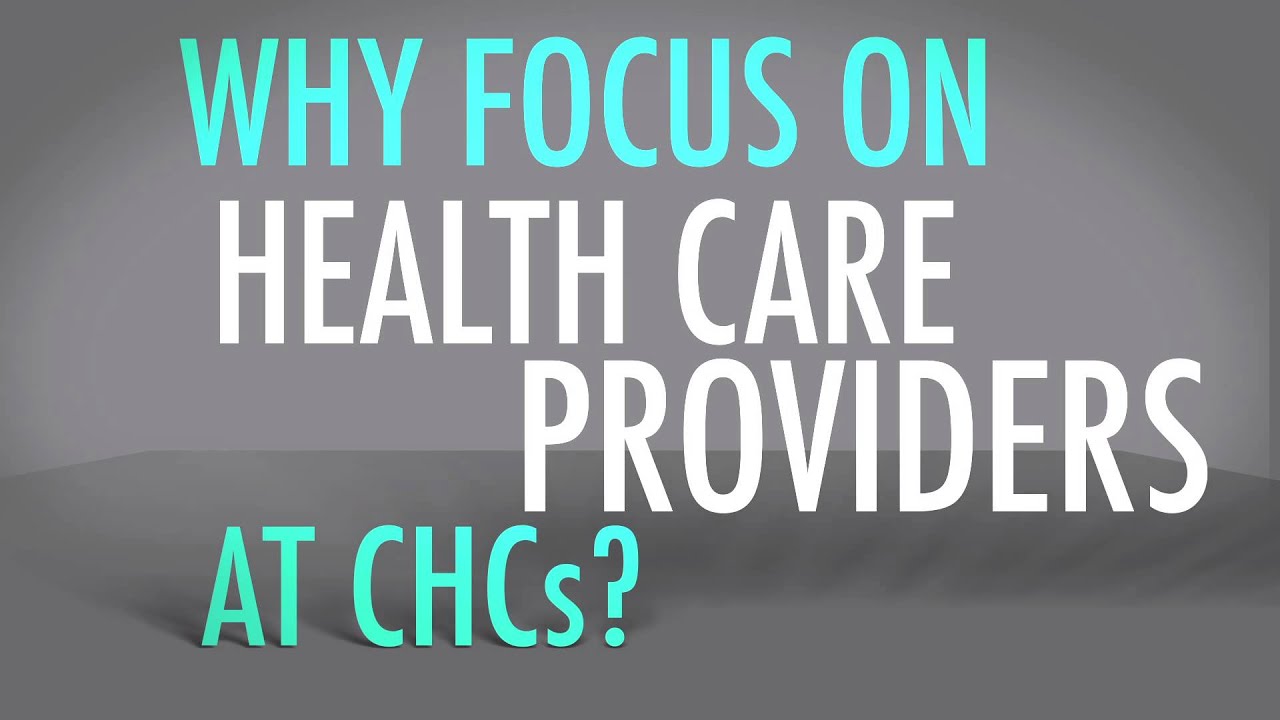Anti-Stigma Initiatives: Breaking Down Barriers
Stigma surrounding addiction creates walls that isolate families and block vital services, fostering a culture of shame and secrecy. Anti-stigma initiatives aim to dismantle these barriers, offering hope and real solutions. From public awareness campaigns and policy changes to community support programs and partnerships with influential brands, these efforts are reshaping perceptions and creating a supportive environment for those affected by addiction.
Public Awareness Campaigns: Shifting Perceptions through Media and Storytelling
Shatter Proof’s Breakthrough Campaign
Launched in 2022, Shatter Proof’s “Breakthrough” campaign has been a game-changer in reshaping public perceptions of addiction. Featuring heartfelt stories from people in recovery, family testimonials, and expert commentary, the campaign humanizes addiction struggles, illustrating how it affects individuals from all walks of life. Storytelling, particularly through real-life experiences, is incredibly powerful in shifting societal norms and reducing stigma. When individuals share their journeys, they put a face to addiction, making it harder to stereotype and easier to empathize.
Partnership with Netflix: “To Live and Stigma-Free”
In 2023, Netflix joined forces with non-profits to produce a docu-series titled “To Live and Stigma-Free.” This series goes beyond typical portrayals of addiction, highlighting successful recovery stories, the science behind addiction, and the impact of community support. Collaborations with mainstream media platforms exponentially amplify the reach and effectiveness of anti-stigma initiatives. Leveraging Netflix’s global viewership, the series has the potential to transform perceptions on a massive scale, counteracting myths and promoting understanding.
Policy Changes: Advocacy for Fair Treatment
Decriminalization Efforts in Oregon
Oregon’s groundbreaking decriminalization of small amounts of drugs in 2021 culminated in the establishment of comprehensive treatment and recovery programs by 2024. Viewing addiction from a public health perspective rather than a criminal justice standpoint is essential in reducing stigma. Policies that emphasize treatment over incarceration cultivate a compassionate and supportive environment for those battling addiction.
The MATTHEW Act
Named in honor of Matthew Shepard, a young man who struggled with addiction, the MATTHEW Act was passed in 2023 ensuring parity in insurance coverage for mental health and addiction treatment. This federal mandate requires insurance companies to offer the same level of coverage for addiction treatment as for other medical conditions. Policies like the MATTHEW Act address systemic biases in healthcare, ensuring equal access to necessary services and affirming that addiction is a medical condition deserving of proper care.
Community Support Programs: Building a Network of Compassion
The National Parent’s Helpline
Established by Mothers Against Addiction in collaboration with local non-profits, the National Parent’s Helpline offers 24/7 support to parents of children struggling with addiction. It provides immediate emotional assistance, resource connections, and a peer support network. Community-driven support services, like the National Parent’s Helpline, create safe spaces for parents to share their struggles and triumphs without fear of judgment. These services ground anti-stigma efforts in human connection and understanding.
Faces & Voices of Recovery
This grassroots organization has been instrumental in creating local community centers across the United States. These centers offer outreach programs, education, and social activities geared toward supporting individuals in recovery and their families. Grassroots organizations exemplify the power of localized efforts in combating stigma. By fostering a sense of belonging and acceptance, these centers help individuals in recovery rebuild their lives while also educating the broader community.
Partnerships with Influencers and Brands: Leveraging Platforms for Positive Influence
Demi Lovato’s Advocacy
A well-known advocate for mental health and addiction recovery, Demi Lovato has partnered with multiple organizations to promote anti-stigma initiatives. Her 2023 campaign with Be Vocal, a mental health advocacy collective, specifically targeted reducing stigma among younger demographics. Celebrities and influencers can significantly impact public opinion, especially among younger audiences. Demi’s openness about her own struggles and recovery journey serves as a powerful counter-narrative to the stigmatizing images frequently portrayed in the media.
Nike’s Inclusive Advertising
In collaboration with the non-profit “We Are Not Alone,” Nike launched an advertising campaign in 2022 featuring athletes who have overcome addiction challenges. The campaign not only highlighted their athletic prowess but also celebrated their resilience in recovery. When global brands like Nike endorse anti-stigma messages, they help normalize the conversation around addiction. The combination of sports and recovery sends a message of strength and endurance, inspiring those affected to seek help without shame.
Academic and Scientific Community: Research-Driven Initiatives
The National Institute on Drug Abuse
The National Institute on Drug Abuse (NIDA) has been at the forefront of conducting groundbreaking research on addiction. In 2023, NIDA launched a public database providing accessible information about the neurobiology of addiction, aiming to educate the public and reduce stigma. Scientific research plays a crucial role in demystifying addiction. By making knowledge accessible, NIDA’s initiative empowers individuals with facts, counteracting the myths and misconceptions that fuel stigma.
Yale’s “Understanding Addiction” Course
This free online course offered by Yale University aims to educate the public on the complexities of addiction. The 2023 curriculum covers the psychological, sociological, and biological aspects, emphasizing compassionate responses. Educational initiatives from reputed academic institutions lend credibility to anti-stigma efforts. They provide a scholarly, evidence-based perspective that challenges outdated and stigmatizing beliefs about addiction.
The Road Ahead: An Integrated Approach to Anti-Stigma Efforts
Anti-stigma initiatives are multifaceted and demand collective effort from various sectors of society. By leveraging public awareness campaigns, policy changes, community support, partnerships with influential figures, and scientific research, we can build a more compassionate and understanding environment for those affected by addiction. Moving forward, sustaining these efforts and adapting to new challenges is essential. Embracing a holistic approach by integrating diverse strategies and amplifying voices from all corners will pave the way for lasting change. This unified front helps dismantle the stigma surrounding addiction, fostering a society that values empathy, support, and recovery.
Each step we take in combating addiction stigma is a step towards a kinder world. It’s not an easy journey, but with courage, compassion, and commitment, we can share the message that addiction doesn’t define anyone. Through initiatives like those supported by www.MothersAgainstAddiction.org, let’s continue breaking down barriers and empowering change.
Anti-stigma Initiatives: Empowering Change
The Power of Media
Ever wondered how much of an impact the media has on addiction stigma? It’s massive. The portrayal of addiction in films, TV shows, and news stories can often paint a distorted and negative picture. In fact, the media’s role https://www.mothersagainstaddiction.org/the-impact-of-media-on-addiction-stigma has been shown to significantly influence public perception, often leading to stereotypes and unfair judgments. Speaking out against these stigmas is crucial. By sharing real-life stories and humanizing addiction, we’re changing hearts and minds one narrative at a time. It’s a powerful way to build empathy and understanding, creating an informed and supportive community.
Together We Can Speak Out
Did you know that advocacy plays a crucial role in reducing addiction stigma? By raising awareness and promoting education, advocacy can drive meaningful change. According to experts in addiction advocacy https://www.mothersagainstaddiction.org/the-role-of-advocacy-in-addiction, speaking out about addiction helps in breaking down the barriers and opening up essential conversations. It’s like casting light on the shadows, making it easier for individuals to seek help without fear of judgment. This approach, combined with collective community efforts, reinforces the importance of support and understanding in tackling stigma head-on.
Trivia and Interesting Tidbits
Here’s a fun fact: Not all homes qualify for traditional loans! Manufactured homes, for example, often need special financing. Like how a manufactured home loan https://www.mortgagerater.com/manufactured-home-loan is tailored for these types of homes, our anti-stigma initiatives are customized to address specific community needs. This ensures a more effective and inclusive approach to eradicating stigma. You might also find it intriguing that the cast of the movie “You Get Me” https://www.theconservativetoday.com/you-get-me-cast includes some outspoken advocates who use their platform to shed light on addiction issues – true champions of the cause!
Personal Encounters and Global Impact
When dealing with addiction, the personal and the global often intersect. Individuals impacted by addiction may find relevant information in places as unexpected as local obituaries https://www.baltimoreexaminer.com/frederick-news-post-obituaries, where reflections on lives lost to addiction are shared. These narratives play a significant part in advocating for mental health resources and support systems. It’s all part of a broader initiative to dismantle stigma by showcasing the realities of addiction and the human stories behind it. Interestingly, discussing capital gains taxes https://www.mortgagerater.com/what-are-capital-gains-taxes might seem unrelated at first glance, but understanding the economic implications of addiction helps us grasp why financial stability is vital for recovery.
A Joint Effort
Lastly, it’s worth noting that where you raise your family can make a difference in supporting anti-stigma initiatives. Some of the best States To raise a family https://www.mortgagerater.com/best-states-to-raise-a-family offer robust support systems for addiction recovery and mental health services. These states have recognized the importance of a supportive community and have invested in resources that help families navigate through tough times. It’s a reminder that combating addiction stigma is a joint effort, involving not just the individuals and their families but broader community and policy-level support as well.
By weaving together different aspects of media influence, advocacy, and community support, anti-stigma initiatives provide a comprehensive approach to tackling the issue. Let’s keep the conversation alive and continue working together to empower change.

What are the ways of reducing stigma?
Educational anti-stigma interventions are a great way to start. They work by giving out factual information about the stigmatized condition, aiming to correct any misinformation or negative attitudes. This helps replace inaccurate stereotypes or myths with the truth, helping people to understand and relate better.
What is the best anti-stigma campaign?
The Elephant In The Room campaign has been studied globally and is considered one of the best anti-stigma efforts out there. For detailed insights, take a look at the research called “A Study of Stigma: Mental Health Initiatives.”
What organizations are fighting mental health stigma?
Many local and national organizations are doing incredible work to fight mental health stigma. Consider supporting groups like the National Alliance on Mental Illness (NAMI), the Depression and Bipolar Support Alliance (DBSA), or the National Suicide Prevention Lifeline. You can volunteer or donate to help their life-saving missions.
What are the four types of stigmatization?
The four types of stigmatization include public stigma, self-stigma, label avoidance, and structural stigma. Each type impacts people differently but all contribute to the broader challenge of social stigma.
What are 3 things you can do to deal with stigma?
To deal with stigma, you can start by educating yourself and others, surround yourself with supportive people, and speak openly about your experiences. Sharing stories can really help break down barriers and encourage others to do the same.
What is the key strategy for managing stigma?
The key strategy for managing stigma is education. By spreading accurate information and personal stories, you can help change the negative perceptions and stereotypes that exist. It’s all about replacing myths with facts.
What is the wise initiative for stigma elimination?
The wise initiative for stigma elimination involves multifaceted approaches including public education campaigns, supportive policies, and community involvement. Tackling stigma from multiple angles increases the chances of making a lasting impact.
How can we fight against stigma?
Fighting against stigma requires both personal and collective efforts. Talk openly about mental health, challenge stereotypes when you hear them, and support policies that promote equality and understanding. Your voice can contribute to a larger change.
What are stigma management strategies?
Stigma management strategies include self-education, advocacy, and finding community support. By becoming knowledgeable, speaking out, and connecting with like-minded people, you can better handle the challenges that come with stigma.
What are 3 common stigmas associated with mental health?
Three common stigmas associated with mental health are that people with mental illness are dangerous, unpredictable, or weak. These misconceptions can be damaging and prevent people from seeking the help they need.
What intervention reduces mental health stigma?
Educational interventions that provide factual information about mental health are effective in reducing stigma. These initiatives correct misinformation and help change negative attitudes, making it easier for people to seek help without fear of judgment.
How can we fight mental health stigma in the workplace?
In the workplace, fighting mental health stigma starts with open conversations and supportive environments. Employers can provide resources and training to help staff understand mental health, creating a culture of empathy and support.
What is the most harmful type of stigma?
The most harmful type of stigma is self-stigma because it can prevent individuals from seeking help and believing in their self-worth. This internalized negativity can have serious consequences on mental health and overall well-being.
What are the 3 approaches to change public stigma of mental illness?
Three approaches to changing public stigma of mental illness include education, contact with people who have lived experience, and policy change. Combining these efforts helps shift perceptions and create a more accepting society.
Is stigma the same as discrimination?
While stigma and discrimination are related, they are not the same. Stigma refers to negative attitudes and beliefs, while discrimination is the unfair treatment that results from these attitudes. Both need to be addressed to create true change.
How can we reduce self stigma?
Reducing self-stigma involves positive self-talk, connecting with others who understand, and seeking professional help if needed. Building self-esteem and challenging negative thoughts are key steps in overcoming self-stigma.
How can we stop discrimination and stigma?
Stopping discrimination and stigma takes communal effort. Advocate for fair policies, educate others, and challenge stereotypes whenever you encounter them. Creating a more inclusive environment benefits everyone.
What are coping strategies for stigma?
Coping strategies for stigma include seeking support from trusted friends and family, joining support groups, and practicing self-care. It’s essential to build a network that understands and supports your journey.
What are stigma management techniques?
Stigma management techniques focus on education, positive advocacy, and seeking community support. By staying informed and being proactive, you can better navigate the challenges stigma presents and help reduce it in society.




























